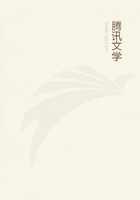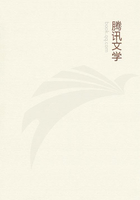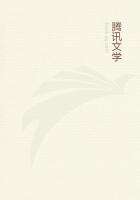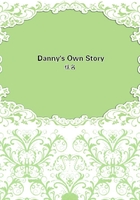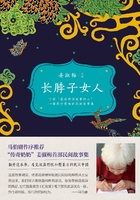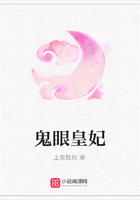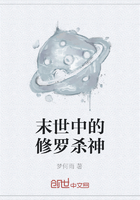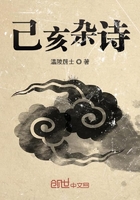As we saw, Marsilly expressed the most effusive gratitude to Arlington, which does not suggest cold usage. Arlington told the complainers that Marsilly was "another man's spy," what man's, Dutch, Spanish, or even French, he does not explain. So Charles gave Marsilly money to go away. He was never trusted with anything but the expulsion of the regicides from Switzerland. Arlington was ordered by Charles to write a letter thanking Balthazar for his good offices.
These explanations by Arlington do not tally with Marsilly's communications to him, as cited at the beginning of this inquiry. Nothing is said in these about getting the regicides of Charles I. out of Switzerland: the paper is entirely concerned with bringing the Protestant Cantons into anti-French League with England, Holland, Spain, and even Sweden. On the other hand, Arlington's acknowledged letter to Balthazar, carried by Marsilly, may be the "commission" of which Marsilly boasted. In any case, on June 2, Charles gave Colbert, the French ambassador, an audience, turning even the Duke of York out of the room. He then repeated to Colbert the explanations of Arlington, already cited, and Arlington, in a separate interview, corroborated Charles. So Colbert wrote to Louis (June 3, 1669); but to de Lyonne, on the same day, "I trust that you will extract from Marsilly much matter for the King's service. It seemed to me that milord d'Arlington was uneasy about it [en avait de l'inquitetude]. . . . There is here in England one Martin" (Eustace Dauger), "who has been that wretch's valet, and who left him discontent." Colbert then proposes to examine Martin, who may know a good deal, and to send him into France. On June 10, Colbert writes to Louis that he expects to see Martin.[1]
[1] Bibl. Nat., Fonds. Francais, No. 10665.
On June 24, Colbert wrote to Louis about a conversation with Charles. It is plain that proofs of a murder-plot by Marsilly were scanty or non-existent, though Colbert averred that Marsilly had discussed the matter with the Spanish Ministers. "Charles knew that he had had much conference with Isola, the Spanish ambassador." Meanwhile, up to July 1, Colbert was trying to persuade Marsilly's valet to go to France, whichhe declined to do, as we have seen. However, the luckless lad, by nods and by veiled words, indicated that he knew a great deal. But not by promise of security and reward could the valet be induced to return to France. "I might ask the King to give up Martin, the valet of Marsilly, to me," Colbert concludes, and, by hook or by crook, he secured the person of the wretched man, as we have seen. In a postcript, Colbert says that he has heard of the execution of Marsilly.
By July 19, as we saw in the previous essay, Louvois was bidding Saint-Mars expect, at Pignerol from Dunkirk, a prisoner of the highest political importance, to be guarded with the utmost secrecy, yet a valet. That valet must be Martin, now called Eustache Dauger, and his secret can only be connected with Marsilly. It may have been something about Arlington's negotiations through Marsilly, as compromising Charles II. Arlington's explanations to the Foreign Committee were certainly incomplete and disingenuous. He, if not Charles, was more deeply engaged with Marsilly than he ventured to report. But Marsilly himself avowed that he did not know why he was to be executed.
Executed he was, in circumstances truly hideous. Perwich, June 5, wrote to an unnamed correspondent in England: "They have all his papers, which speak much of the Triple Alliance, but I know not whether they can lawfully hang him for this, having been naturalized in Holland, and taken in a privileged country" (Switzerland). Montague (Paris, June 22, 1669) writes to Arlington that Marsilly is to die, so it has been decided, for "a rape which he formerly committed at Nismes," and after the execution, on June 26, declares that, when broken on the wheel, Marsilly "still persisted that he was guilty of nothing, nor did know why he was put to death."Like Eustache Dauger, Marsilly professed that he did not know his own secret. The charge of a rape, long ago, at Nismes, was obviously trumped up to cover the real reason for the extraordinary vindictiveness with which he was pursued, illegally taken, and barbarously slain. Mere Protestant restlessness on his part is hardly an explanation. There was clearly no evidence for the charge of a plot to murder Louis XIV., in which Colbert, in England, seems to have believed. Even if the French Government believed that he was at once an agent of Charles II., and atthe same time a would-be assassin of Louis XIV., that hardly accounts for the intense secrecy with which his valet, Eustache Dauger, was always surrounded. Did Marsilly know of the Secret Treaty, and was it from him that Arlington got his first inkling of the royal plot? If so, Marsilly would probably have exposed the mystery in Protestant interests. We are entirely baffled.
In any case, Francis Vernon, writing from Paris to Williamson (?) (June 19/25, 1669), gave a terrible account of Marsilly's death. (For the letter, see Note V.) With a broken piece of glass (as we learn from another source), Marsilly, in prison, wounded himself in a ghastly manner, probably hoping to die by loss of blood. They seared him with a red-hot iron, and hurried on his execution. He was broken on the wheel, and was two hours in dying (June 22). Contrary to usage, a Protestant preacher was brought to attend him on the scaffold. He came most reluctantly, expecting insult, but not a taunt was uttered by the fanatic populace. "He came up the scaffold, great silence all about," Marsilly lay naked, stretched on a St. Andrew's cross. He had seemed half dead, his head hanging limp, "like a drooping calf." To greet the minister of his own faith, he raised himself, to the surprise of all, and spoke out loud and clear. He utterly denied all share in a scheme to murder Louis. The rest may be read in the original letter (p. 51).

